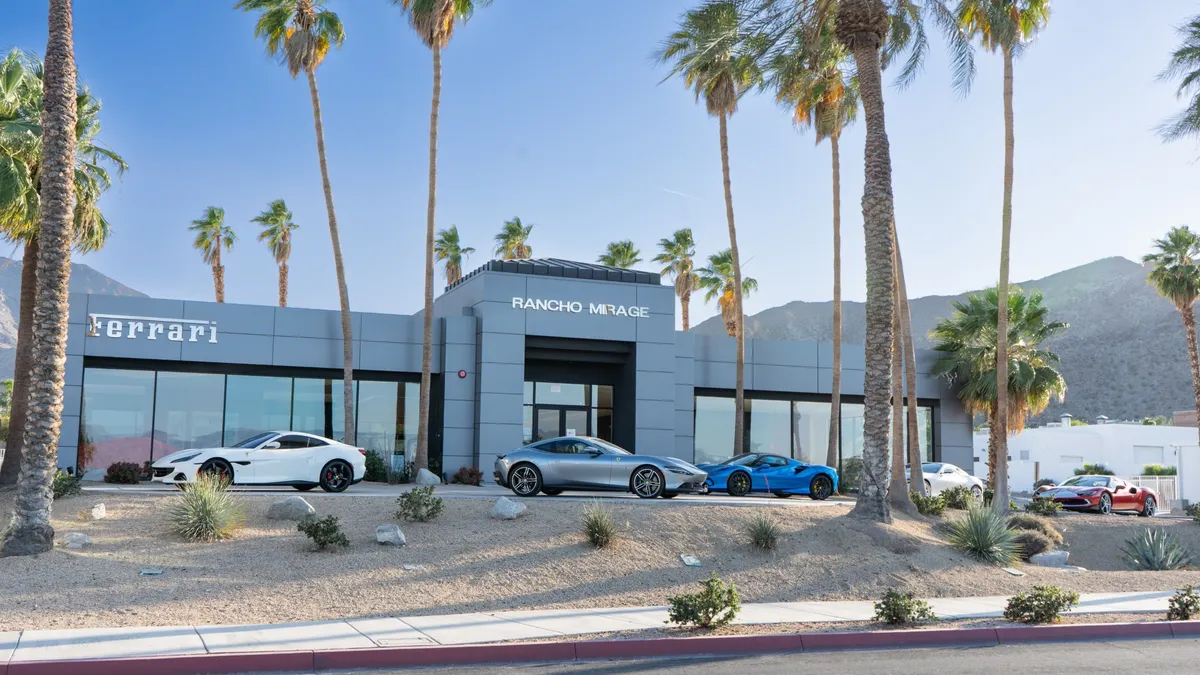Editor's note: This story is part of the WardsAuto digital archive, which may include content that was first published in print, or in different web layouts.
As cars become increasingly connected, dealerships need ways to benefit from all the information those vehicles are generating. Companies are launching products that allow dealers to do just that, and to boost service-lane income in the process.
“We are at this point where technology is allowing dealerships to have far more reach than before, without having their own tech department or collaborating with a third party,” Karl Brauer, executive publisher at Kelley Blue Book, AutoTrader and Dealer.com tells WardsAuto.
Dealer-FX, a customer-experience management software provider based in Rochester Hills, MI, recently launched ONE Platform. It combines data from six of its software packages to give a service adviser a unified view of where a customer is in the service cycle.
It has resulted in a 24% improvement in parts and service, a 21% increase in repair orders and a tripling of retention rates, Dealer-FX claims.
“You have to give the dealership the proper tools to interact with the customer more easily,” says Gary Kalk, CEO of Dealer-FX. “It is too complicated now.”
The ONE Platform pulls data from services that help a dealer schedule service appointments; provides fast, transparent check-in; conducts inspections; manages shop workflow by getting customer approvals through text or email; has curbside checkout and, ultimately, retains the customer, he says.
The ONE Platform automatically will be installed when a dealership updates its Dealer-FX offerings. More than 2,000 dealerships representing five manufacturers now use those Dealer-FX products, the company says. The cost ranges between $1,500 and $2,500 a month.
The new platform shows a service advisor where a vehicle is in each stage of the service process. For example, if a replacement part isn’t in stock and a repair may take longer, the service adviser immediately can notify the customer of a delay in delivery.
The new product helps the dealership improve the customer experience in other ways, Kalk says. With all the metrics gathered in a central location, a dealer can analyze how quickly a customer is greeted in the service lane, what the customer is saying about the experience, how long it takes to return the vehicle to the customer, and whether a dealership is missing delivery times, among other uses, he says.
“This business intelligence is going to allow a dealership to be more efficient, to manage capacity better and to retain customers better,” Kalk says.
Now that Dealer-FX can gather in one platform all that data, it is looking to go a step further. It has partnered with Carlisle & Company, a Concord, MA-based aftersales strategy and solutions provider, to create a program that uses machine learning to crunch all that customer data and start to monetize it.
The program, which is still being tested, will allow a dealership to customize each customer’s service-lane experience, says Kalk. So, for example, it will learn which service adviser a customer prefers. It also can predict when a customer is likely to leave the dealership for another service provider. “Our initial proof of concept has brought tremendous insight,” he says.
Dealing with that much information can be tricky, says KBB’s Brauer: “The success depends on the ability to not just capture the data, but also have a system in place to organize and act on that data. Until then, it is just a lot of noise.”
Another company finding ways for dealerships to use customer data is Spireon, an aftermarket telematics solutions provider based in Irvine, CA. It launched a connected-car product called Kahu, which includes an aftermarket GPS device and mobile application that has uses for both dealers and their customers.
Dealerships pay Spireon $50 per vehicle to install the GPS device on their vehicle inventory, chief product officer Jason Penkethman explains.
Customers then can choose to buy access to the Kahu application through a dealership’s F&I department. The cost, which is set by the dealer but is roughly $795 for three years, is rolled into the vehicle purchase price.
The GPS device tracks the car’s mileage and the application notifies the dealer when to send service reminders based on actual miles driven.
“This allows the dealer to have a relationship with the customer,” says Penkethman.
A customer opts in to receive the service reminders. But Kahu offers much more than that; the app’s main function is to help prevent theft by allowing an owner to track a vehicle, set geofencing parameters and get real-time alerts if they are violated. Essentially, it creates a connected car.
That makes sense for the dealer and manufacturer, Brauer says. It can be included on older as well as new vehicles, he notes, and “it will make it easier for dealers to sell their service post-sale.”
Kahu saw an average 30% sell-through rate at the 20 dealerships across the U.S. where it has been tested, Penkethman says, adding the app is set for a wider launch in the second quarter. Spireon also is talking with automakers about including Kahu as original equipment on a vehicle, he says.
Access to connected-car information is the Holy Grail for dealerships and automakers, says Eric Noble, president of The Car Lab, a design and product-planning consultancy based in Orange, CA. Tools such as ONE Platform, and especially Kahu, potentially can enhance the ownership experience and the service-lane revenue stream for the dealer, but they will have to be properly utilized, he says.
Then there is the fact that consumers often aren’t interested in having a relationship with their dealer or their car’s manufacturer, he says.
“We have yet to see any evidence that consumers are willing to pay any monthly fee so that the dealer or the OE can have any more information about their car,” Noble says.



















